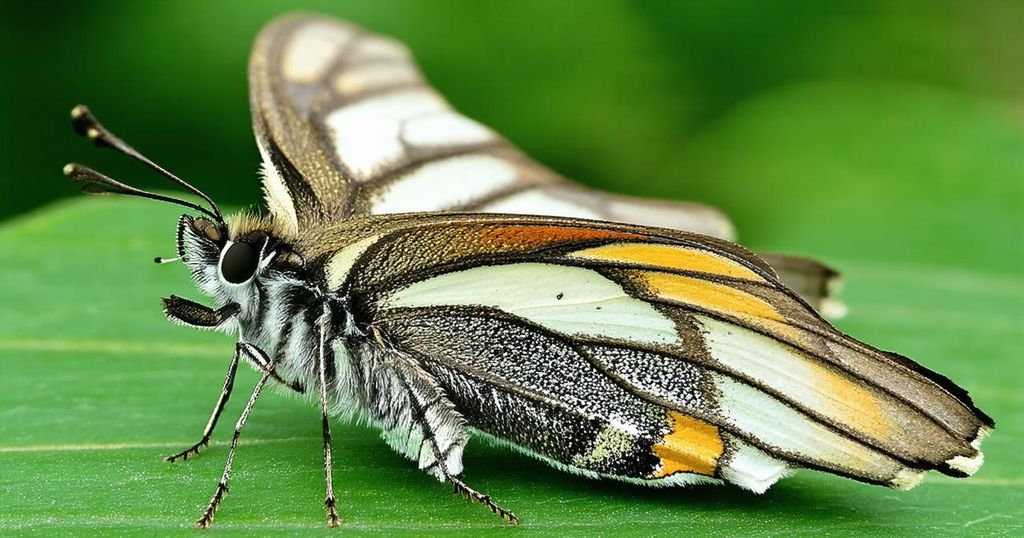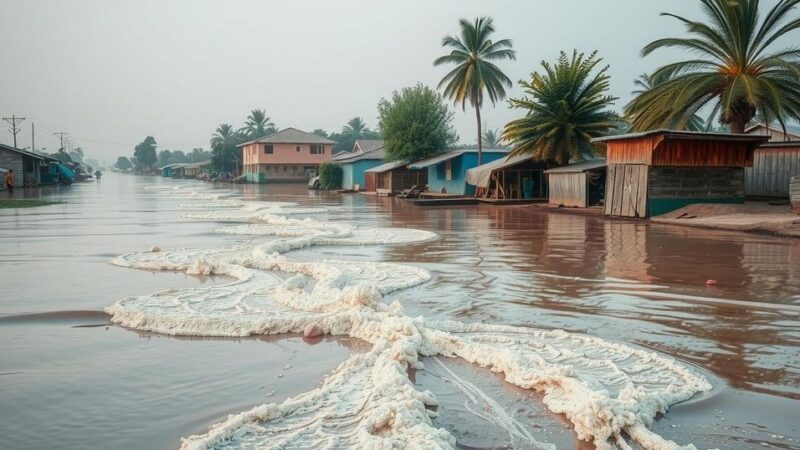Climate change is gravely affecting butterfly populations in Greece, where rising temperatures and food scarcity threaten their survival. Research indicates that climatic changes may lead to a reduction in butterfly size, with escalating wildfires further exacerbating habitat loss. Experts emphasize the urgent need for comprehensive studies to understand and mitigate these environmental impacts.
In a carefully controlled environment at a zoo located outside Athens, a vibrant array of butterflies delicately extract nourishing juice from orange slices, sheltered from the adverse effects of climate change that jeopardize populations in Greece and globally. Rising temperatures are rendering life increasingly difficult for Greece’s native butterfly species, of which there are approximately 237 varieties. This climatic shift results in diminishing food availability, shorter flowering seasons, and experts now suggest that it may lead to a reduction in the size of these insects. The phenomenon is not confined to Greece alone; it is observable worldwide. Countries such as Mexico and Britain are witnessing significant declines in their butterfly populations. Konstantinos Anagnostellis, an agronomist involved in this research, emphasized, “Climate change is impacting butterflies … that rely on temperature to perform essential activities such as mating, reproduction, growth, and feeding.” Anagnostellis is affiliated with MEIOSIS, a research initiative established by the University of Ioannina, which investigates the implications of climate change on butterfly size. The project entails an extensive analysis of over 50,000 butterfly specimens collected over the past century to depict trends in body size reduction attributable to climatic shifts. Increases in temperatures compel butterflies to migrate towards cooler regions, where they often encounter limited food sources. Furthermore, the escalating frequency of wildfires in Greece exacerbates food scarcity by decimating grassland habitats critical for butterfly larvae. Anagnostellis cautioned, “If these plants are burned, there is a risk of direct mortality for the larvae, and we may not have adult butterflies to reproduce, forcing them to migrate to other areas.”
The article addresses the significant challenges posed by climate change to butterfly populations in Greece, illustrating how rising temperatures impact their survival and reproduction. Greece, home to 237 butterfly species, is particularly affected by shorter flowering periods and food scarcity. The research project MEIOSIS strives to quantify the impact of the environment on butterfly size over time, showcasing how climate affects species not only locally but also on a global scale. This environmental concern resonates with similar declines observed in butterfly species in regions such as Mexico and Britain, emphasizing the urgent need for understanding and addressing climate impacts.
In summary, climate change poses a considerable threat to butterfly populations in Greece, with rising temperatures leading to decreased food availability, shorter reproductive periods, and potential reductions in body size. The MEIOSIS project highlights the need to monitor these populations meticulously as wildfires further threaten their habitats. Without intervention, the impacts of climate change may result in irrevocable losses for these vital species, ultimately disrupting local ecosystems.
Original Source: kfgo.com







